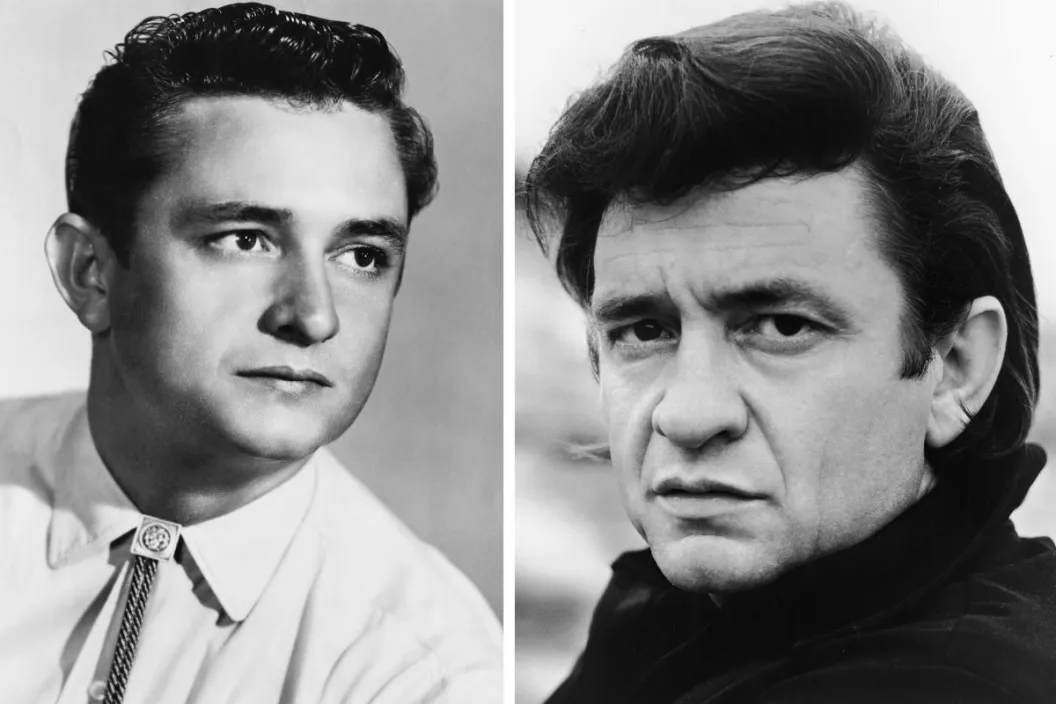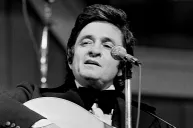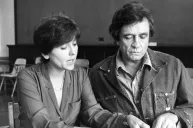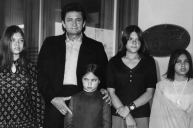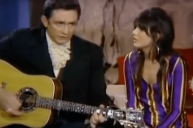Johnny Cash was born on February 26, 1932, and tragically passed away on September 12, 2003. In between those dates, the Man in Black elevated the entire country music genre with his controlled, deep voice that sang stories of tragedy, loss, morality, and redemption. The singer, songwriter, musician, and actor is best known for his songs "Folsom Prison Blues," "I Walk the Line," "Ring of Fire" and "Get Rhythm."
Videos by Wide Open Country
His music career and relationship with June Carter were detailed in the Oscar-winning 2005 biopic Walk the Line starring Joaquin Phoenix and Reese Witherspoon. Cash worked up until the very end, creating some of his most haunting work on his final few albums.
Let us take a look back at what this country outlaw and rebel accomplished during the seven decades he graced us with his talent.
1950s
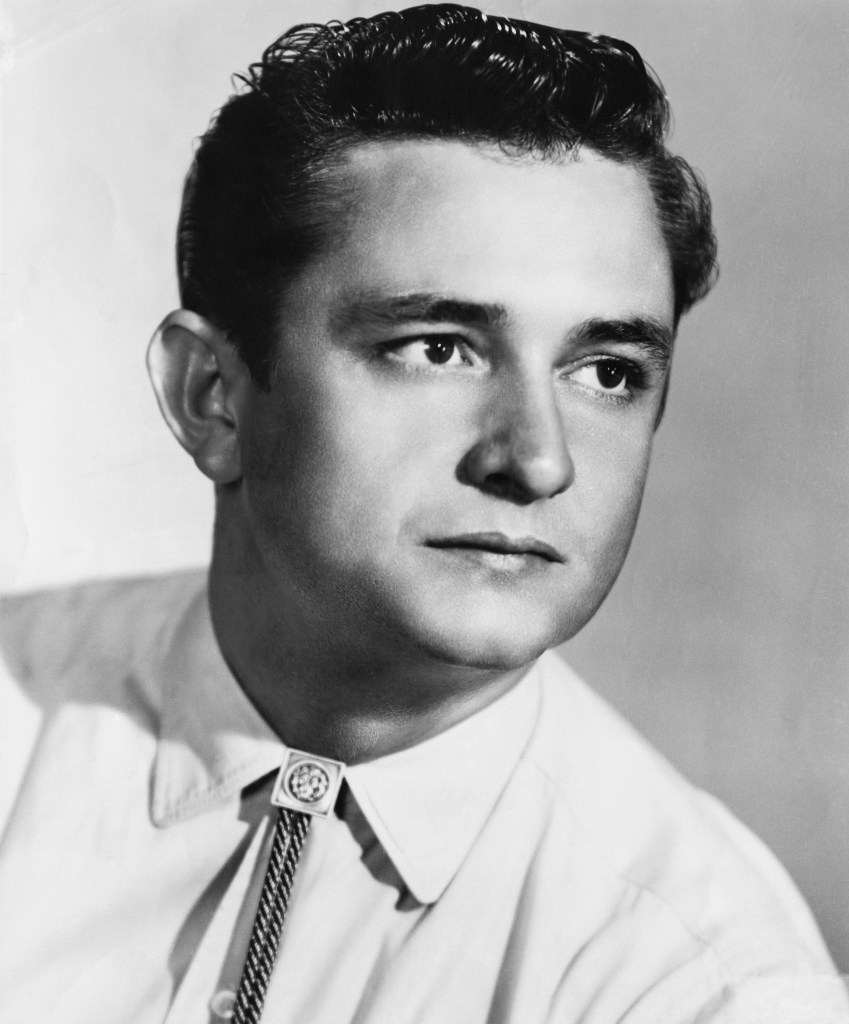
MEMPHIS - 1955: Country singer/songwriter Johnny Cash poses for a portrait in 1955 in Memphis, Tennessee. (Photo by Michael Ochs Archives/Getty Images)
Cash kicked off his career in 1955 when he signed with Sun Records. His first singles were "Hey Porter" and "Cry! Cry! Cry!," both of which were embraced by country fans. He married Vivian Liberto in 1954 and their daughter (and future country singer) Rosanne Cash was born in 1955, but Johnny's marriage was doomed because of his irrepressible attraction to a singer with whom he would collaborate and tour in the next decade. Cash's signature song, "I Walk the Line," was released in 1956, topping the country charts and becoming a crossover hit on the Billboard U.S. pop charts.
1960s
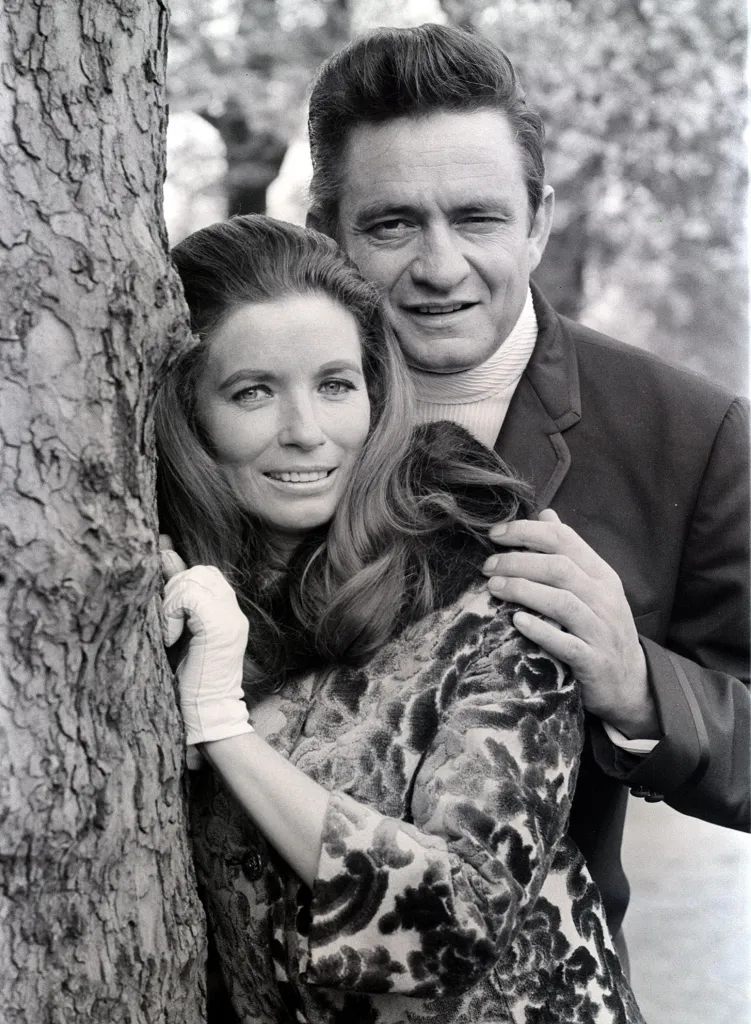
Johnny Cash and June Carter, May 1968 (Photo by Ley/Mirrorpix/Mirrorpix via Getty Images)
In the 1960s, Cash started touring with the Carter Family, including June Carter. She co-wrote the song "Ring of Fire" for Johnny, which was about their forbidden love, and it became one of the biggest hits of his career. The two married in 1968, and the above photo was taken a few weeks after they made it official. Their 1967 duet "Jackson" won a Grammy Award.
Cash, an outlaw at heart, empathized with the incarcerated and performed many times at prisons. Both his 1968 live album Johnny Cash at Folsom Prison and 1969 live album Johnny Cash at San Quentin were crossover hits. It was during this decade that Cash also became an activist for Native Americans, releasing the album Bitter Tears: Ballads of the American Indian in 1964. On The Johnny Cash Show, which made its TV debut in 1969, Cash used the variety-show format to continue telling stories about the trials and tribulations of Native Americans.
1970s
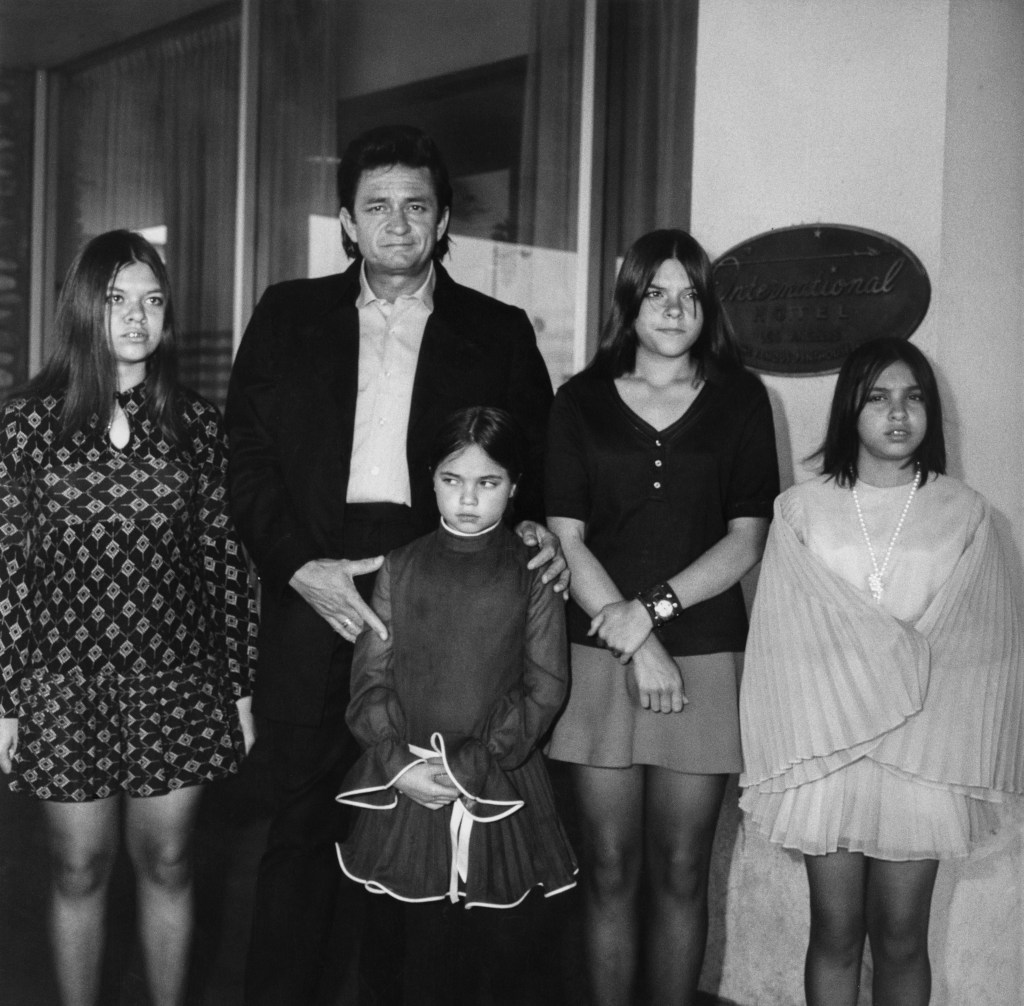
American singer-songwriter Johnny Cash (1932 - 2003) and his four daughters from his first marriage on heir way to a Catholic Mass at the Church of St Anastasia in Inglewood, Los Angeles, May 1970. The girls are (left to right) Kathy, Tara, Rosanne and Cindy. Cash was in town for a concert. (Photo by Frank Edwards/Fotos International/Archive Photos/Getty Images)
In the 1970s, Cash really cultivated his Man in Black image as, like with most Americans, the Vietnam War weighed heavily on his mind. He met with President Nixon in July 1972 to discuss prison reform. After the war finally ended, Cash said, "The old are still neglected, the poor are still poor, the young are still dying before their time, and we're not making many moves to make things right. There's still plenty of darkness to carry off." Although Cash didn't have as many hits in the 1970s, he appeared in several TV commercials, continued work on his TV show until 1972, and released his first autobiography, Man in Black, in 1975.
1980s
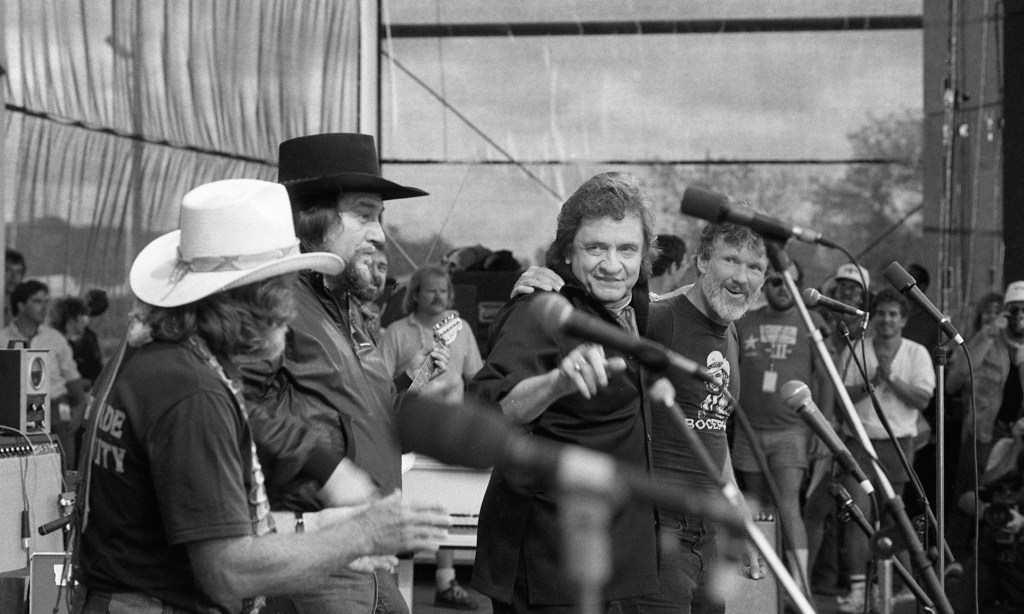
Country singer and songwriter Willie Nelson, Waylon Jennings, Johnny Cash and Kris Kristofferson perform as the Highwaymen at Willie Nelson Fourth of July picnic on July 4, 1985 in Austin, Texas. (photo by Beth Gwinn/Getty Images)
The 1980s were all about collaboration for the Man in Black. In 1985, Cash released his first of three-hit albums with Willie Nelson, Waylon Jennings, and Kris Kristofferson as the Highwaymen. During the '80s, Cash also appeared on The Muppet Show, starred in several TV movies, published the novel Man in White about the biblical Saul's conversion to Paul, and returned to Sun Studios in Memphis to record the album Class of '55 with Roy Orbison, Jerry Lewis and Carl Perkins.
In 1988, after visiting Jennings in hospital, Cash had his heart condition evaluated and underwent double bypass surgery. He claims to have had a near-death experience, which shaped his creative output for the remainder of his life.
1990s
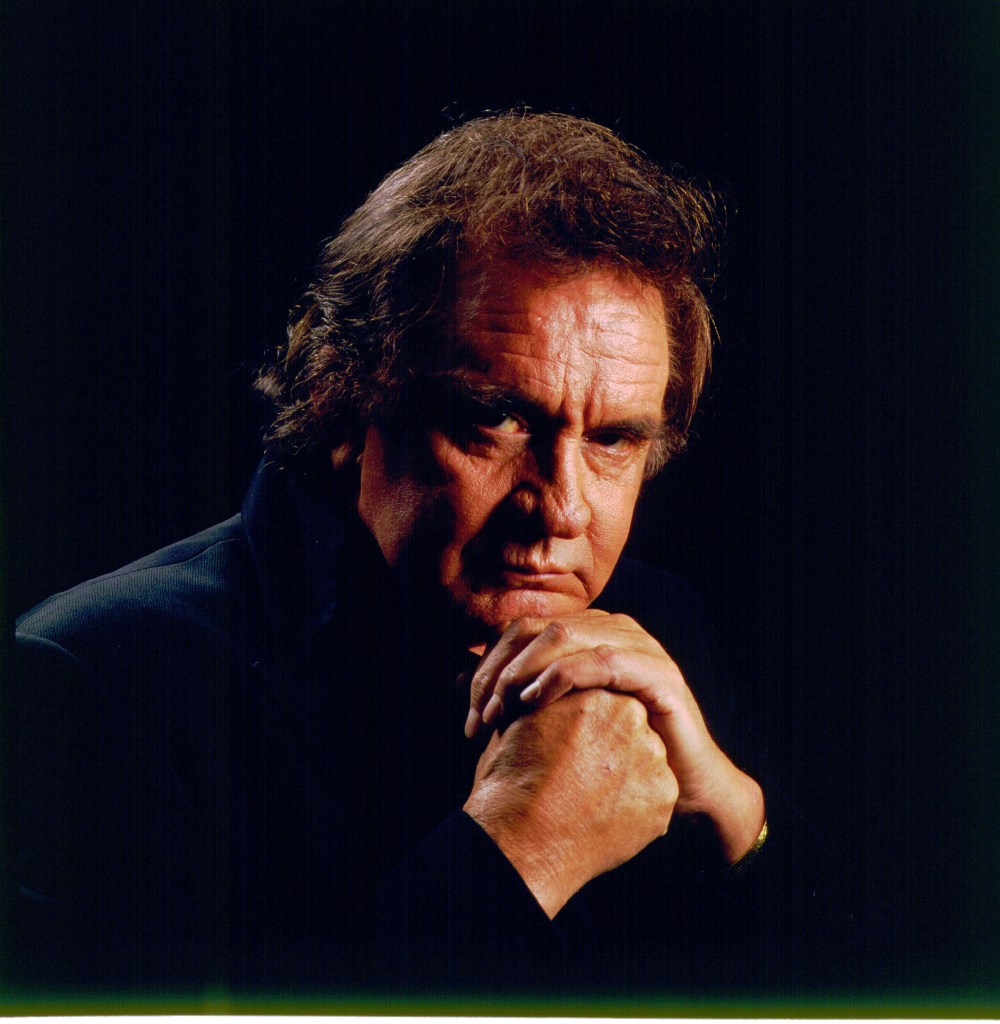
Johnny Cash on 5/2/94 (Photo by Paul Natkin/WireImage)
In the 1990s, Cash released two more albums with the Highwaymen and began to be embraced by alternative-rock artists. A tribute album titled 'Til Things Are Brighter featured postpunk interpretations of Cash's songs, which gave Cash a morale boost and much-needed validation. In 1993, Cash sang "The Wanderer," the closing track on U2's Zooropa album, which Bono wrote for Cash. A year later, Cash released American Recordings, an album of cover songs that he recorded in his living room. The album was a critical and commercial success, earning Cash a Grammy for Best Contemporary Folk Album.
2000s
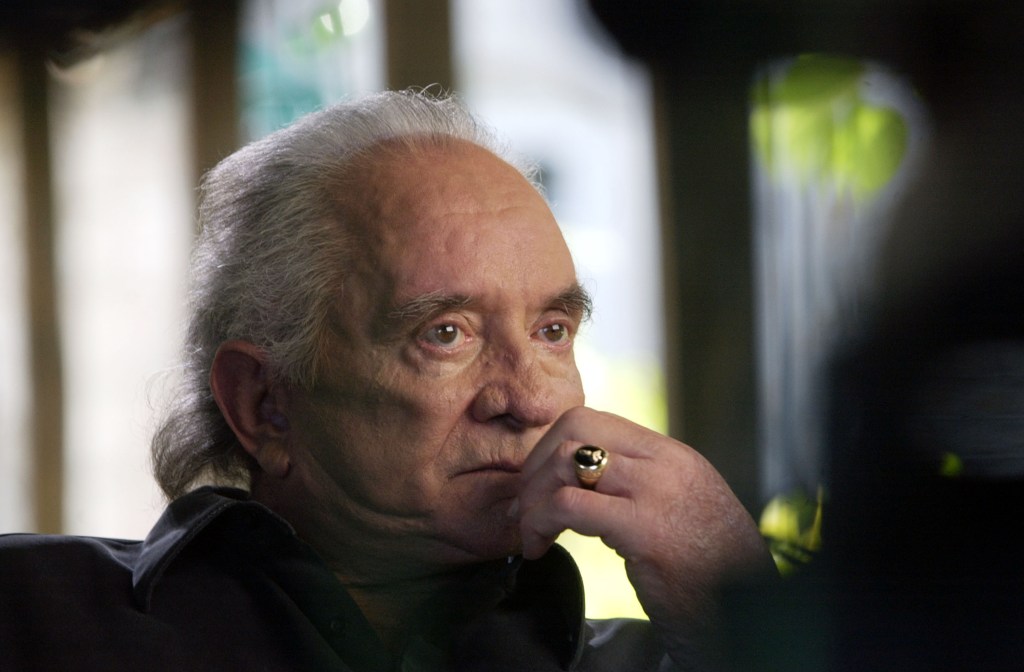
(Photo by R. Diamond/WireImage)
Cash's last album released while he was still alive, 2002's American IV: The Man Comes Around, contains his haunting covers of Depeche Mode's "Personal Jesus" and Nine Inch Nails' "Hurt." Shortly before June passed away on May 15, 2003, she encouraged Johnny to continue recording, which he did even though her passing broke his heart. Johnny Cash died on September 12, 2003, only four months after June. They are buried next to each other near their home in Hendersonville, Tennessee. Many of Cash's final recordings, including covers as well as the original songs "I Came to Believe" and "Like the 309," appear on the 2006 posthumous album American V: A Hundred Highways.
Cash had always been a champion for the underdog, beaten down, and restless souls. There were issues that weighed heavily on his mind, and we're privileged that he unburdened himself by expressing them in song. In his own words: "I'd love to wear a rainbow every day/And tell the world that everything's okay/But I'll try to carry off a little darkness on my back/'Til things are brighter, I'm the Man in Black."
